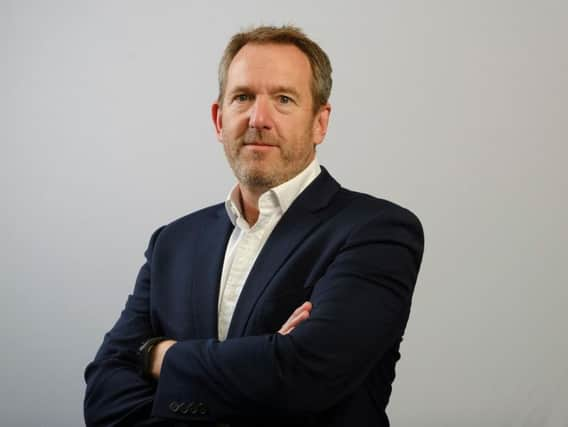Adapt business models to save planet and profits - Les Bayne


The optimism around the opportunities for businesses to align their efforts with the UN Sustainability Development Goals that existed just a few years ago has now changed to a profound sense of urgency.
In the latest UN Global Compact & Accenture Strategy study, the world’s leading CEOs acknowledge that businesses are not measuring up. They recognise that the business community should be making a far greater contribution to achieving a sustainable global economy and society.
Advertisement
Hide AdAdvertisement
Hide AdAccording to 76 per cent of CEOs, citizen trust will be critical to business competitiveness in their respective industries in the next five years while half (48 per cent) are already implementing sustainability into operations. Nonetheless, just 21 per cent believe business is playing a critical role in contributing to the Global Goals.
Their unequivocal call is that business leaders in all sectors must step up action and change market systems to drive a decade of delivery.
In Scotland, where world-leading climate change legislation sets a target date for net-zero emissions of all greenhouse gases by 2045, the stark truth is that businesses will need to make dramatic changes to how they operate and create value.
Four essential actions
The good news is that while consumer interest in sustainability has intensified, creating a groundswell of demand, so investor sentiment is beginning to recognise the risk to shareholder value from companies with high carbon exposure.
It is quite compelling that Mark Carney, the outgoing governor of the Bank of England, will soon take on a UN role as a climate action and finance advocate. Mr Carney recently told Scottish business leaders that this is the start of a sustainability revolution and every company should have a plan for how they respond.
There are many examples of entrepreneurialism in this space. Until recently, product designs have typically failed to consider end-of-use scenarios as a key input, yet now we are seeing companies using waste as source materials for the manufacture of new products and the development of new bio-materials. In our Waste to Wealth report Accenture identified that a global opportunity worth $4.5 trillion was up for grabs by redefining the concept of waste as a valuable resource.
Technology is also a key enabler of innovative business models and last month it was heartening to see the Can Do Innovation Challenge Fund, managed by Scottish Enterprise, backing six firms harnessing artificial intelligence to tackle the climate crisis.
There is much that Scottish companies can do to battle the climate emergency. The first action is to set bold, ambitious targets. Check out Microsoft’s 17 Goals starting with “no poverty”. Secondly, put in place reporting structures to understand exposure to physical and transitional risks, as well as where the business might succeed in a low carbon economy.
Advertisement
Hide AdAdvertisement
Hide AdThirdly, act on these risks by shifting the business portfolio away from high carbon activities in operations, supply chains or product portfolio. ScottishPower has offered some great recent examples of this here in Scotland. Finally, make investment count. Delivery of Scotland’s transition to net zero will require substantial investment in new technologies, infrastructure and capability and companies who take a lead will be rewarded.
As we look ahead to COP26 in Glasgow, it is increasingly clear that change cannot be incremental. If we are to meet the Global Goals, business needs to adopt a transformational agenda.
This is the decade for businesses to step up and deliver for society and for the economy.
- Les Bayne is joint MD of Accenture Scotland.